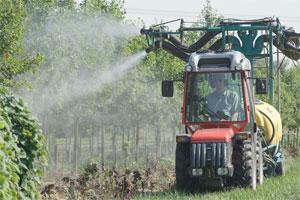EPA Highlights for the Week of December 12, 2016

- Water Challenges Are Actually Opportunities
- EPA Requires Stronger Standards for Applying the Riskiest Pesticides
- Teacher Award Applications Due March 1
Water Challenges Are Actually Opportunities
 This is a moment of opportunity to modernize our aging water infrastructure.We all depend on clean and reliable water – our families, our communities, our businesses, our society. Water is a finite and valuable asset and a major economic driver. It is essential to urban revitalization and a key focus of our efforts to build resilience.
This is a moment of opportunity to modernize our aging water infrastructure.We all depend on clean and reliable water – our families, our communities, our businesses, our society. Water is a finite and valuable asset and a major economic driver. It is essential to urban revitalization and a key focus of our efforts to build resilience.
Since 2009, EPA – in partnership with states, cities, utilities, NGOs, and businesses – has made giant strides to advance clean water protection.
Read a blog post by EPA Administrator Gina McCarthy on why water challenges are actually opportunities.
EPA Requires Stronger Standards for Applying the Riskiest Pesticides
 Benefits of this rule include fewer acute pesticide incidents to people and reduced chronic exposure.EPA recently finalized standards for applicators who apply restricted-use pesticides that are not available for purchase by the general public, and require special handling. This action will reduce the likelihood of harm from the misapplication of pesticides.
Benefits of this rule include fewer acute pesticide incidents to people and reduced chronic exposure.EPA recently finalized standards for applicators who apply restricted-use pesticides that are not available for purchase by the general public, and require special handling. This action will reduce the likelihood of harm from the misapplication of pesticides.
EPA’s stricter standards would require all people who are certified to apply restricted use pesticides as well as those working under their supervision to be at least 18 years of age. These certifications must be renewed every five years. Learn more about how the pesticide application rule protects workers from pesticide risk.
Read a blog post by Assistant Administrator Jim Jones about the strengthened standards.
Teacher Award Applications Due March 1
 Teacher awardees connect students with the world around them.The Presidential Innovation Award for Environmental Educators (PIAEE) recognizes outstanding K-12 teachers who employ innovative approaches to environmental education and use the environment as a context for learning.
Teacher awardees connect students with the world around them.The Presidential Innovation Award for Environmental Educators (PIAEE) recognizes outstanding K-12 teachers who employ innovative approaches to environmental education and use the environment as a context for learning.
Award winners receive up to $2,500 to continue their professional development in environmental education. Additionally, the teacher's local education agency also receives up to $2,500 to fund environmental education activities and programs.
